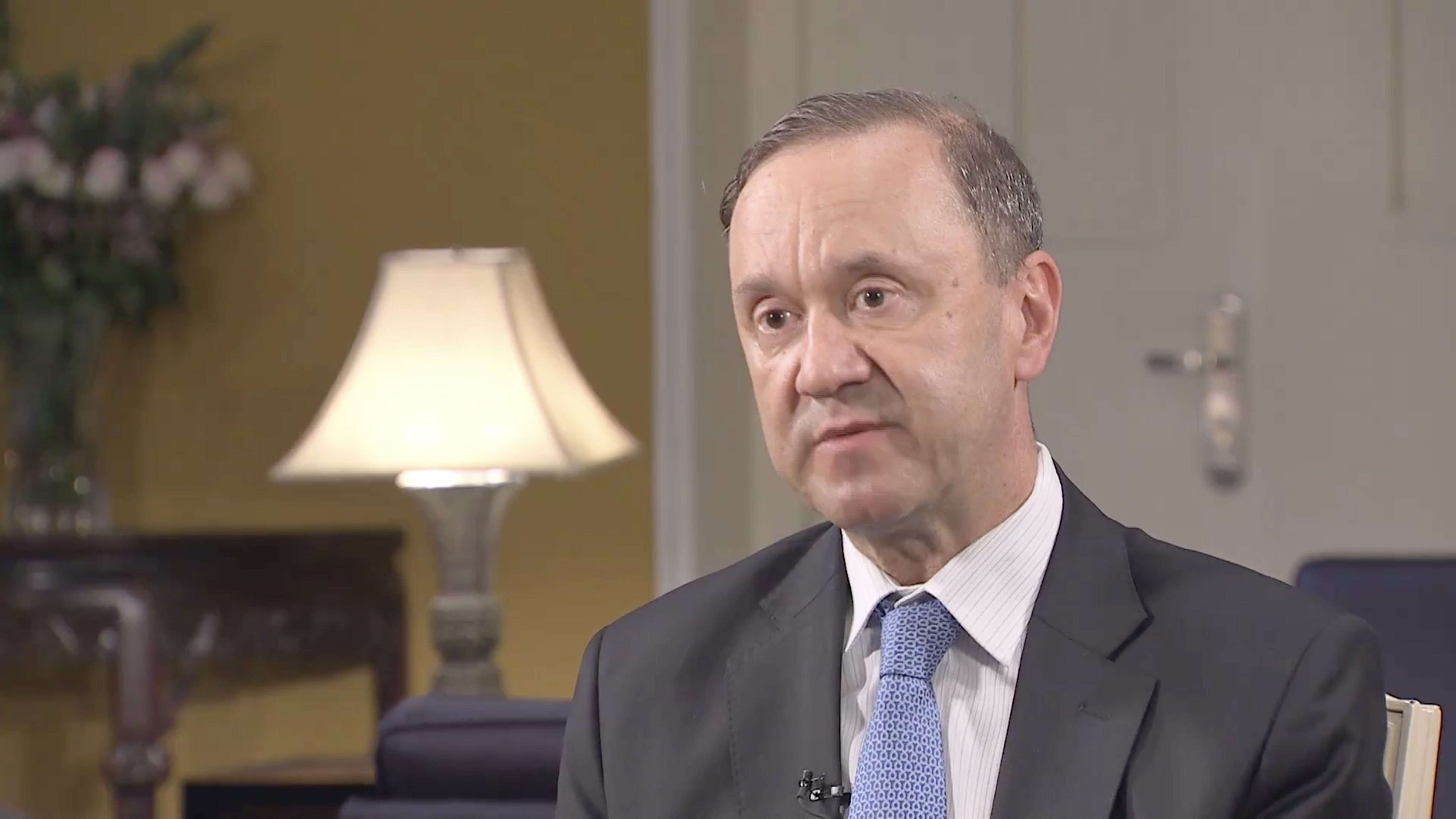04:01

Brazil's ambassador to China Paulo Estivallet de Mesquita said that the two countries should be proud of what they have achieved in bilateral trade.
"We started from a very low base, and even as recently as 20 years ago trade between Brazil and China was only three billion dollars a year. Now it's more than 100 billion. So we have multiplied by 30 the volume of trade in the last twenty years," said Estivallet de Mesquita.
China has been Brazil's largest trading partner for 10 consecutive years, while Brazil is China's eighth largest. Bilateral investment started to pick up six or seven years ago. China has become one of Brazil's largest sources of foreign investment, with this figure currently sitting at over 70 billion U.S. dollars; more than 300 Chinese companies have established branches and offices in Brazil.

Brazil benefits from China-U.S. trade war
One highlight of China-Brazil bilateral trade is agriculture. Brazil has benefited from the China-U.S. trade war, with China buying more Brazilian soybeans as an alternative to those from the U.S. Two other major Brazilian imports for China are iron ore and oil. Meanwhile, China exports machinery, steel and textiles to Brazil.
Estivallet de Mesquita said that the two key areas for future cooperation are biotechnology and the digital economy. He described the latter as "one of the most dynamic areas" in which "both countries have achieved significant progress." "China is of course a leader in digital payments," and the area needs "more cooperation between governments to establish regulations to deal with anti-trust, with fraud (and) consumer protection."
The year 2019 marks 45 years since the establishment of diplomatic relations between China and Brazil.
Last month Brazilian President Jair Bolsonaro paid his first state visit to China. He said that Brazil hoped to develop diversified relations with China, and during the visit a series of bilateral agreements were signed. In a joint communique, Bolsonaro and Chinese President Xi Jinping said that both countries would further their bilateral trade, strive for trade diversification and strengthen cooperation in science, culture and sport.

BRICS' potential
Brazil is to host the 11th BRICS summit in its capital Brasilia this week. Estivallet de Mesquita said that the group, consisting of Brazil, Russia, India, China and South Africa, set an example of countries working together both in terms of sharing principles and "generating market opportunities."
BRICS comprises almost half of the world's population and some of its largest economies, Estivallet de Mesquita detailed. "These are countries that face a number of challenges (but) also have much to offer, not only to each other but to the international community."
One of the major challenges facing BRICS nations is an economic slowdown, due to the trends of protectionism and unilateralism. The Brazilian economy is expected to grow by less than 1 percent in 2019. Estivallet de Mesquita believes the only way to overcome this challenge is by upholding multilateralism and strengthening cooperation.
Countries should not try to impose or constrain each other, Estivallet de Mesquita said. "We have to admit that there are differences and find solutions that work for all countries. What the BRICS have achieved in these 10 years is that something can be done, even between countries that are so different to each other. If you are willing to do it... if you want to work on the basis of cooperation, it can be achieved."